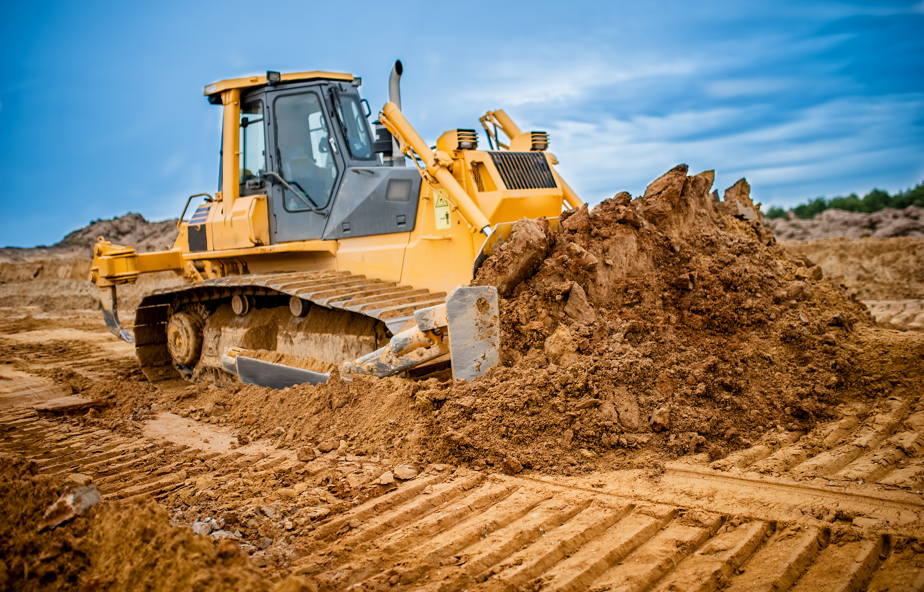Demand for mobile plant and equipment (MPE) will increase considerably over the next three to five years. That’s primarily due to federal and state infrastructure projects coming online. But there’s a complication: disrupted global supply chains. First, COVID and, more recently, the war in Ukraine have disrupted shipping, parts supply and manufacturing across the globe.
NTI’s Gary Woodhams explains that “before COVID, there was a lot of transport, urban and civil infrastructure expected to be rolled out. But as governments have needed to stimulate their economies, many of these projects have been brought forward.”
By 2024, some $49 billion of work will be under construction in the transport infrastructure sector alone. There is also considerable activity happening in the mining space. These projects create many opportunities for companies and contractors but also present challenges.
Too many jobs, not enough equipment
Disrupted supply chains are impacting project pipelines. In Australia, we see increased demand exacerbating the supply-side problem. Typically, businesses source mobile plant and equipment (MPE) from overseas. But governments worldwide are attempting to support their economies through this period, meaning there is little MPE available, and the wait times are considerable.
In short, equipment is scarce. Manufacturers cannot match their old production and shipping volumes, so prices are increasing, and waiting times for new MPE are getting longer.
That’s why we’ve seen an upsurge in equipment hire. Operational businesses need to supplement their existing fleets, however large or small, to complete their jobs. Specialised equipment – that might not be economical to own – is in particular demand.
Hire or operational businesses with under-utilised assets can thus benefit from opportunities to provide MPE to other companies.
MPE opportunities and challenges
For operational businesses, the opportunity is to take advantage of the significant infrastructure pipeline to tender and win more work. The challenge is access to MPE, and if hiring at fair rates and fair hire contract conditions.
For hiring businesses, the opportunity is to generate more income from their assets. The challenge is to ensure they can supply those assets correctly valued and adequately protected.
In both cases, the hire agreement is the critical document. In the first instance, it must make commercial sense for both parties, offering good value to the hirer and fair returns to the owner.
The insurance component is crucial. A good agreement will clarify who is responsible for the insurance; or, if there is a damage waiver, the types of damage or incidents covered by the owner and what must be covered by the hirer.
For the owner, retaining a lawyer to draft a standard hire agreement will be money well spent.
For the hirer, reading the agreement carefully and asking the owner directly what’s covered and what’s not is prudent. It’s also essential to understand the terms and shop around if you’re not comfortable.
Know your terms: Damage waivers aren’t insurance policies
Hire businesses commonly include damage waivers in their hire agreements. However, hirers need to know that a damage waiver is not an insurance policy. It’s a clause that releases the hirer from the cost of repairing or replacing damaged equipment.
However, these clauses can be restrictive by limiting the damage waiver benefit ‘to or excluding certain events’ with additional restrictions or requirements. These can be onerous and very easily expose the person hiring the equipment to an expensive uninsured financial loss, as Gary explains:
“We sometimes see clients who think a damage waiver is insurance. I’ll give an example. A client hires in a conditionally registered excavator for five days. They pay an extra $700 for a damage waiver.
“The excavator is tracking on the road and slews around. The dipper arm comes to a stop inside a passing BMW. The damage waiver covers any damage to the excavator – but not to the car.”
That’s why if you are hiring mobile plant and equipment, it’s essential to know your terms and be sure you understand what your hire agreement covers.
“For the owner, hiring is a great way to expand your business’s capabilities or generate extra revenue,” Gary says.
“However, not spending the money to have a lawyer experienced in crafting hire agreements for the mobile plant hire industry is a false economy.
“Not obtaining the correct insurance cover and extensions is also a false economy.
“The cost means nothing compared to what a claim or prolonged dispute could be worth.”
As always, it’s worthwhile for both owners and hirers to obtain the right advice and the right insurance. Speak to your lawyer and your insurance broker. Contact us today if you’d like to know more.
